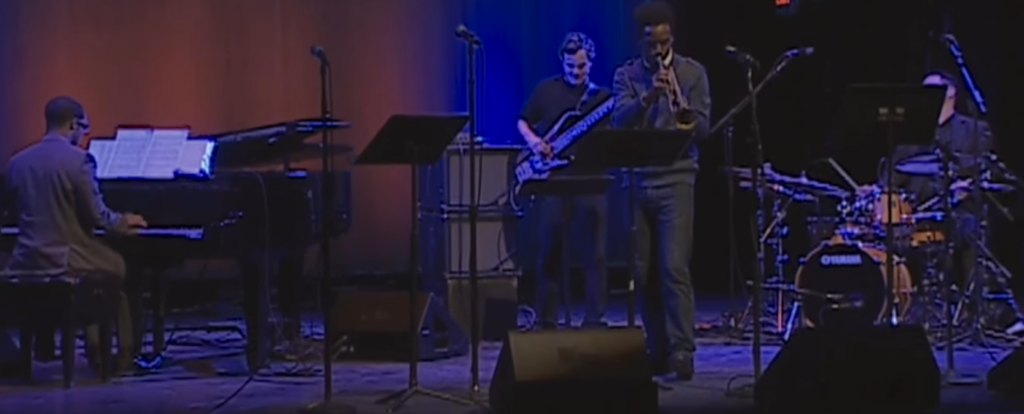Invictus

This is a highly interactive compilation of repertoire that seeks to interpret a message of strength through a very important poem, "Invictus" written by William Ernest Henley. Each tune of this through-composed piece reflects ideas and statements that derive from the poem.
The process of feeling conquered or unconquered, along with an opportunity to work together with other artists is what inspired this project. Harris doesn't subscribe to the belief that it’s meant for a musician to only play music or a visual artist to only draw, or a photographer to only take photos. We are all seeking to communicate something that makes the difference, that is impactful. And Harris saw that a creative alliance could be shaped by combining music poetry.
Harris recounts that Invictus’ author, William Ernest Henley lived an inspirational yet challenging life. He was someone who was not afraid to talk about the heavier times we all go through but he also offered a view into meaningful ways to deal with such times. Nelson Madela is known to have used this poem to remain focused and motivated while incarcerated at Robben Island. As an artist, Harris admits that he encounters ‘delicate’ times where it may be difficult to stay creative without having to conform. But remaining ‘unconquered’ means believing in one self and that one can be inventive, yield sound results, and make a difference despite opposing forces.
In composing the tunes for this project, Harris studied the different stanzas of Invictus and assigned a different word to the way each stanza made him feel.
One stanza inspired the word ‘Questions’ – “When you internalize the poem,” Harris says, “or any art that challenges one paradigm, you start by asking yourself questions. In this case, some of the questions are ‘How much am I the master of my fate and to what degree am I the captain of my soul?’, ‘What does it mean for someone to believe that God is in charge?’. Henley was an atheist and these powerful words were certainly referring to a reliance on self, but I wrestle with these words,” Harris continues, “with the fact that I believe that god gives me the power of choice and as such, to steer my life in whichever direction I choose. To this fact, I am the captain.”
Another tune is ‘Descent’ – “ ‘Descending’ comes before the questions. In honesty,” Harris emphasizes,” it is critical to admit to ways one has been conquered, how often, and what habits we continue to repeat that “imprison” us. Failing to make this journey, we are bound to stay on the same course and we become steered by routine instead of being the ‘captains’ we actually are.”
The tune ‘Biko’ is dedicated to Steve Biko, the South African anti-apartheid activist who reached out to the younger generation and help them to bring to light the horrors and injustices of his country’s tragic system.
‘The Elders’ morning revival song’ - This tune is the only one with lyrics and is dedicated to the elders who have passed on before us, those who are looking on our actions throughout our lives from sunrise to sunset.
Harris has dedicated ‘Lullaby for a Yellowbird, Lullaby for Humanity’ in part to his wife and in part to humanity. Harris states that “the love that I feel from and for my wife is very special and envisioning the same type of care among the members of the human race is a dream that I believe we have stopped pursuing. It’s dedicated to a powerful cohesiveness that we can and should achieve.”
Harris says that some projects are to be taken to the studio and record, others, like this one, are just to be performed live.